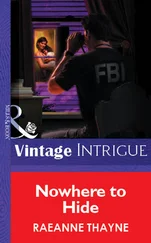It had taken her a few minutes to register the fact when she’d first arrived. On the surface, it had all looked impressive enough. A neat little unit in a serviced office block just off the main drag near the centre of Chester. Half a mile and a world away from the city of Roman remains and bijou fashion shops, but it probably still had what the property agents would describe as a prestigious address. The Victrix Business Park, for Christ’s sake.
Inside, though, it wasn’t quite right. The place was an old factory that had clearly been converted hurriedly. Okay, perhaps not quite as hurriedly as she’d been converted into Maggie Yates – and, come to that, couldn’t they have found a more prestigious name for her as well? – but more hurriedly than the building’s pretensions required. She was no expert, but even sitting here Marie could see that the wallpaper was badly applied, the paintwork sloppy, the carpet cheap and already beginning to wear. Even the office furniture looked outdated. Not, she suspected, the kind of image that McGrath was hoping to project.
There were other signs, too. As the secretary had led her in from the chilly unattended lobby, Marie had glimpsed the rear courtyard through one of the windows. A miniature junkyard – an old fridge, a discarded sink unit, a broken table lined with paint pots, all overgrown with weeds. If the offices had been recently converted, she might have thought it was just waiting to be tidied, but this place was no longer new.
Even the staff weren’t up to scratch. There had been no one at the reception desk in the lobby, and no response when Marie had pressed the electric bell on the desk. After a while, she’d used her mobile to phone the number she’d been given. The secretary had answered the call and, after a few minutes, had bustled officiously through into the lobby. Marie suspected that the secretary and McGrath himself were the only occupants of this part of the building.
She knew that these thoughts were partly just a displacement activity, a way of not thinking too hard about the fragility of the ice beneath her. Salter had been full of reassurance and had even wheeled out Winsor, the psychologist, to confirm just how emotionally resilient she would be in the face of diversity. Or something like that. Winsor had spouted his familiar professional gobbledygook and she’d nodded politely, knowing by then that it was all going to happen anyway.
Jesus, then there was Liam. When she’d finally broken the news that she was going back out into the field, he’d responded better than she’d feared. He’d taken the news calmly, shrugged, told her that, yes, of course she had to keep things going at work. He absolutely understood that. He wouldn’t want it any other way.
She’d enjoyed a few seconds of relief at his reaction before she became concerned. At first, she thought that Liam was reverting to the passive-aggressive style he’d perfected in the early days of his illness. But this felt different. This felt sincere. And that raised questions about what was going on in Liam’s head. There were times, already, when he seemed like a different person.
She’d tried to put all that from her mind as she’d made her way up here. She and Liam had danced round the issue of her departure, talking about the practicalities rather than the emotional impact of their separation. The practicalities had been challenging enough. She’d had to ensure that a suitable care regime was in place for Liam. He was already barely capable making his way around the house, even in the wheelchair, and was no longer able to look after himself reliably. He had two carers, funded by social services and supplied through some agency, who had been coming in twice a day to prepare him a meal and, essentially, check that he was okay. After a little negotiation, they’d managed to add another visit in the evening while Marie was away. Marie had had the impression that the main carer, Sue, hadn’t been all that impressed by the idea of Liam being left alone overnight. But what other option did Marie have?
‘Mrs Yates?’
Shit. She almost missed her cue. That was why, in some cases, undercover officers stuck with their real names, or at least their real forenames, to minimise the risk of that moment’s hesitation. Or, worse still, of reacting to a name that wasn’t supposed to be yours.
She recovered herself in time. ‘Miss, actually,’ she said. ‘Divorced. I decided to go back to my maiden name. Don’t ask.’ She laughed, rising to her feet and holding out her hand for McGrath to shake. ‘But please call me Maggie. Pleased to meet you.’
‘Likewise.’ McGrath was observing her with an expression that managed to remain just the right side of lecherous. ‘Please come through – Maggie.’ He gestured for her to precede him into his poky office. She could feel his eyes making a full appraisal of what was likely to lie underneath her clothes. If she’d harboured any doubts about actually getting the job, she began to feel more confident now that it was in the bag.
‘Please. Take a seat,’ he said from behind her. There was a faint trace of an Irish lilt in his voice, she thought, though you had to listen for it. Or know something of his history. She lowered herself into the chair facing McGrath’s desk, and waited while he seated himself opposite. The desk was a mess – unsorted piles of paperwork, messy looking files, a discarded coffee cup.
‘Good to meet you, Maggie,’ McGrath said. He’d wasted no time in taking up her invitation to use her first name. ‘You come highly recommended.’
She smiled. McGrath’s non-professional interest in her was so transparent that it was difficult not to play up to it. ‘Not too highly, I hope. I don’t know if I can live up to it.’ She knew exactly how highly she’d been recommended, and by whom. More of the string-pulling that they were so adept at in the Agency. It was clever stuff. It was usually a tame informant who’d set the wheels in motion, getting the word about her out on the grapevine. In this case, according to Salter, they’d got wind of the fact that McGrath was looking for a discreet administrator to help him keep the various strands of his business in order. Looking at this place, she wasn’t surprised. McGrath had positioned himself, as so many of them did, as a legitimate businessman, running a more or less straight operation in parallel with his seamier activities. But, looking at the desk, she could imagine that administration wasn’t McGrath’s strongest point.
The key word, of course, was discreet. In her short telephone conversation with McGrath, they’d maintained the fiction that she would be looking after the above-board element of McGrath’s business – an import/export business which, according to the records she’d checked at Companies’ House, had a turnover barely large enough to cover her requested salary. But the grapevine had been very clear that McGrath was looking for someone to help run all parts of his business, including those elements that were kept hidden from the light of day.
Maggie Yates came highly recommended to fulfil that particular brief. The story was that she’d been the brains behind her ex-husband’s business, an East End mix of legitimate market-trading and more clandestine dealing. She’d given her husband loyal support, up to the point where she’d caught him dipping his hands into the till to subsidise his affair with some Dalston pole-dancer. She’d withdrawn a sizable sum from the business account, packed her suitcases, and headed north, leaving her ex with a pregnant pole-dancer and a pile of debts. It was a decent story, filtered skilfully through a succession of friends of friends. Creating an undercover legend was a little like money-laundering, she’d sometimes thought. The original source gets lost along the way, and the story becomes a little more legitimate each time it’s passed on. The figure who’d recommended her to McGrath had sincerely believed everything he’d said, having received the story himself from someone he considered reliable.
Читать дальше












